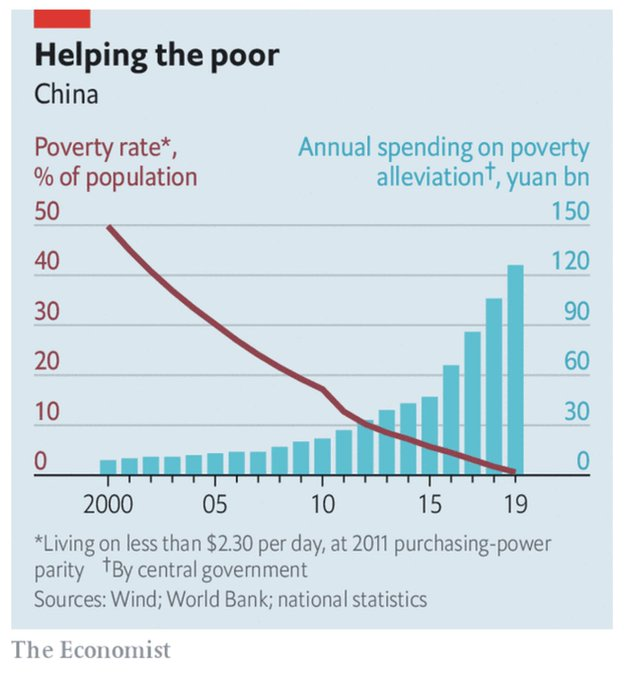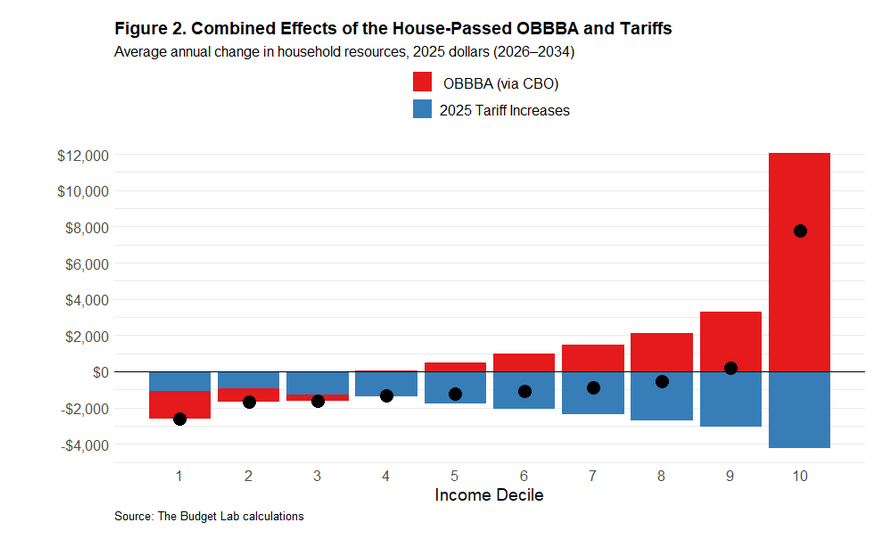Week-end Wrap – Political Economy – August 24, 2025
by Tony Wikrent
Neoliberalism is not a viable option
Richard Murphy, August 22 2025 [Funding the Future]
… a fascinating blog post by someone called Blair Fix.
He analysed fascism in what seems like an entirely original way, showing that its roots are, in effect, in mediaeval theocracy, because the language used by those of fascist persuasion is remarkably similar to that found in some 17th, and maybe 18th, century political mediaeval theocratic thought, after which periods the language of the enlightenment displaced that of the theocrats, although the latter is now on the rise again….
In his analysis of fascist writing, Blair Fix identified three common threats. One was the significant overuse of violent symbolism. Words like annihilation, bloodshed, conquer, extermination and fighting were substantially overused when compared to the body of normal writing of the periods when fascist or similar ideas were written.
The second was a significant quantity of emotion-laden judgment, typified by the use of words like betrayed, cowardice, enemies, hatred, humiliation, slander and treason.
Third, he found there was a significant use of what appear to be quasi-religious, e.g. references to the Almighty, blessings, providence and the eternal….
The Deep Roots of Fascist Thought
[Economics from the top down, via Funding the Future 08-22-2025]
…In this essay, I’ll use word frequency to track the spread of fascist ideology. The journey starts with a trip to 1930s Europe, where we’ll encounter the works of Benito Mussolini and Adolf Hitler (translated into English). The rantings of these two villains will serve as our corpus of fascist text. From this text, we’ll extract the ‘jargon’ of fascism — the words that Mussolini and Hitler use frequently and overuse relative to mainstream English. With this jargon, we’ll then track the popularity of fascist thinking in written language….
…In hindsight, the delusions of 2010 seem rather quaint. So was it then that neo-fascism first took root? Turning to our linguistic data, the answer is no. The seeds of today’s neo-fascism were planted decades earlier, in the 1980s. Figure 3 shows the trend….
…the fall of the Soviet Union left capitalism alone — free to be plagued by its own excesses. What would follow was a period of free-market cravenness which made the rich richer and left the poor to fend for themselves. Unsurprisingly, amidst the humiliation of this class war, dark ideas brewed. But for years, folks in the mainstream didn’t listen. Even when Trump won the presidency, elites dismissed it as an accident — a brief departure from the norm. It was not. Trump, it seems, is riding a wide wave of fascist discontent. We ignore it at our own peril….
…reflect on the common roots of injustice, which I think are fairly simple. They stem from the belief in innate inequality. Pick any horrific act, and you will find it easier to perform if you declare the victim a lesser human. Likewise, if you view the victim as your equal, the same act feels appalling. So it is the belief in human inequality which motivates injustice. And it is this shared belief in inequality which unifies the various forms of far-right politics. (This is Corey Robin’s thesis, explored in his book The Reactionary Mind.)2….
Figure 4: The deep roots of fascist thought in English writing. When we trace Mussolini and Hitler’s fascist jargon back in time, we find that ‘fascism’ seems to be overwhelmingly an ideology of the past. The frequency of fascist jargon was highest in 18th-century English writing and then declined continuously until the early 20th century. [Sources and methods]….
…Then I’ve tracked the frequency of these words over four centuries of German publishing. The results are unambiguous. In German books, the high point of fascist thought came in the 1600s, three centuries before Hitler seized power….
Trump not violating any law
‘He who saves his Country does not violate any Law’
Trump Stuns By Saying ‘I Don’t Know’ When Asked Directly NBC’s Kristen Welker ‘Don’t You Need to Uphold the Constitution?’
Joe DePaolo, May 4th, 2025 [mediaite.com]3
Pentagon plan would create military ‘reaction force’ for civil unrest
Alex Horton and David Ovalle, August 12, 2025 [Washington Post]
Trump’s FBI Raid of John Bolton’s Home Looks Like a “Five-Alarm Fire”
Greg Sargent, August 22, 2025 [The New Republic]
- Longtime Trump ally Steve Bannon explicitly declared the other day that ICE officers will indeed be employed during the 2026 midterm elections in large numbers to monitor voting booths, again floating undocumented voters as the bullshit pretext to justify it. Bannon is not in a position to compel this, of course, but it’s clear the MAGA movement now sees Trump’s militarization of cities as a precursor to the use of law enforcement and/or the military to intimidate voters in large numbers, or foment a crisis atmosphere designed to help the GOP, or both.
- Last but not least, as we reported, a recent internal Department of Homeland Security memo outlines the hopes of senior DHS officials for substantially escalated military involvement in domestic law enforcement going forward. It even declares that military operations like the one in L.A. may be needed “for years to come.”
Trump Says Chicago ‘Probably Next’ for National Guard Invasion
Brett Wilkins, August 23, 2025 [CommonDreams]
Military lawyers to handle civilian crimes in DC
[The Hill, via Naked Capitalism 08-22-2025]
Trump administration to begin continuous police-state surveillance of 55 million US visa holders
[WSWS, via Naked Capitalism 08-22-2025]
Trump’s “Truth” About Voting
Joyce Vance, Aug 18 2025 [Civil Discourse]
…Trump elaborated on the post Monday afternoon, saying the quiet part out loud: “If you [end] mail in voting, you’re not gonna have many Democrats get elected,” he said in the Oval Office. Trump mumbles a bit as he’s making the comment, but the context is plain….
- Trump claims that “We are now the only Country in the World that uses Mail-In Voting. All others gave it up because of the MASSIVE VOTER FRAUD ENCOUNTERED.” That’s not true. Countries including Canada, the United Kingdom, Germany, Australia, and Switzerland use mail in ballots, and there is no more suggestion of fraud there than there is here….
- Trump claims he will sign an executive order to this effect (he hasn’t yet) because “the States are merely an ‘agent’ for the Federal Government in counting and tabulating the votes. They must do what the Federal Government, as represented by the President of the United States, tells them, FOR THE GOOD OF OUR COUNTRY.” That’s another wild and false claim. Congress sets the date and the time for national elections, but all other matters are reserved to the states, and each state runs its own elections with its own rules. If that wasn’t clear to Trump previously, it should be now. In June, a judge blocked the part of Trump’s March executive order that sought to stop states from counting mail-in ballots postmarked by Election Day but arrived afterward. The judge emphasized that presidents can’t impose their views about how to conduct elections on the states….
Trump Demands: Ditch Vote-By-Mail. Republicans Shouldn’t
Bill Scher, August 19, 2025 [Washington Monthly]
…Donald Trump declared on his social media network that he is “going to lead a movement to get rid of MAIL-IN BALLOTS” and that he will do it unilaterally. He continued:
“WE WILL BEGIN THIS EFFORT, WHICH WILL BE STRONGLY OPPOSED BY THE DEMOCRATS BECAUSE THEY CHEAT AT LEVELS NEVER SEEN BEFORE, by signing an EXECUTIVE ORDER to help bring HONESTY to the 2026 Midterm Elections. Remember, the States are merely an “agent” for the Federal Government in counting and tabulating the votes. They must do what the Federal Government, as represented by the President of the United States, tells them, FOR THE GOOD OF OUR COUNTRY, to do.”
‘Psychological warfare’: Internal data shows true nature of Alligator Alcatraz
[Miami Herald, via Naked Capitalism 08-21-2025]
Why are you so massively “obsessed” with Slavery?
Frank Vyan Walton, August 19, 2025 [DailyKos]
Trump: “The Smithsonian is OUT OF CONTROL, where everything discussed is how horrible our Country is, how bad Slavery was, and how unaccomplished the downtrodden have been — Nothing about Success, nothing about Brightness, nothing about the Future…”
“Slavery was very, very, very bad, and I hope that view continues to be reflected in our national museums,” said deputy opinion editor James Hohmann at the Washington Post….
Legal analyst and Substacker Aaron Parnas questioned Trump’s demand that museums talk about “the Future.”
“Also, why would museums talk about the future?” Parnas questioned….
Professor of human rights law Steve Peers mocked, “MAKE SLAVERY GREAT AGAIN!”
Power at any cost: It’s Trump Capitulation Disorder.
Thomas Mills, Aug 22, 2025 [PoliticsNC]
The FBI is raiding John Bolton’s house this morning. Bolton served as Trump’s National Security Advisor during his first term and as Ambassador to the UN under George W. Bush. Since the end of Trump’s term, Bolton has been a steady and harsh critic of Trump, calling him unfit to be president.
Alarm bells should be ringing, but, if they are, Republicans won’t hear them or won’t heed them. The people who once decried government agents as “jack-booted thugs,” now shrug when federal troops are deployed to US cities or the president uses the FBI to go after his political enemies, of whom John Bolton is one.
Republicans call Democrats’ fear of Trump’s authoritarian actions and impulses “Trump Derangement Syndrome.” In reality, their acceptance of behavior they once derided is Trump Capitulation Disorder….
Strategic Political Economy
How Trump Is Undoing 80 Years of American Greatness
Garrett M. Graff [New York Times, via The Big Picture August 17, 2025]
What America may find is that we have squandered the greatest gift of the Manhattan Project — which, in the end, wasn’t the bomb but a new way of looking at how science and government can work together….
Organizations like the national labs at Oak Ridge, Los Alamos and Berkeley that grew out of the Manhattan Project became the backbone of a stunning period of scientific and technological advances in the decades after the war. They were joined by the National Science Foundation (founded in 1950); Defense Advanced Research Projects Agency, or DARPA (founded in 1958); and the National Institutes of Health, which became a major grant-maker after the war — not to mention a host of other agencies like NASA and the Department of Energy….
[TW: Graff is strictly correct in focusing on the Manhattan Project, but he misses the larger picture, which was the creation of a communal “team” of government, universities, and private institutions, organized by the national government to create and perfect the technologies needed to win World War Two. These included much more than the atomic bomb, such as radar, proximity fuses, the aerodynamics of laminar flow, penicillin, packaged foods, and more.
[Especially glaring is Graff’s omission of Vannevar Bush, the dean of Department of Electrical Engineering at the Massachusetts Institute of Technology, who Roosevelt put in charge of the Office of Scientific Research and Development (OSRD). At the end of the war, Bush wrote a report that firmly established the principle that science was a public good which required adequate sustained funding by the federal government:
Science the Endless Frontier — A Report to the President by Vannevar Bush, Director of the Office of Scientific Research and Development, July 1945
(United States Government Printing Office, Washington: 1945
[Writing in response to a request from President Roosevelt for an outline of what to do after the war, Bush argued that basic scientific research was essential for long-term technological progress and economic growth, and had to be supported even in the absence of any identifiable immediate commercial application or profitability. He called for the creation of an independent, federally funded agency to support basic research and talent development in universities and industry. Bush’s report directly influenced Congress’ creation of the National Science Foundation in 1950. Bush’s model of the NSF is credited with promoting and steering the development of the computer, microchips and electronic miniaturization, the Internet, medical devices and procedures, and much more.
[In July 1945, The Atlantic Monthly published an essay by Vannevar Bush, “As We May Think,”
Of what lasting benefit has been man’s use of science and of the new instruments which his research brought into existence? First, they have increased his control of his material environment. They have improved his food, his clothing, his shelter; they have increased his security and released him partly from the bondage of bare existence. They have given him increased knowledge of his own biological processes so that he has had a progressive freedom from disease and an increased span of life. They are illuminating the interactions of his physiological and psychological functions, giving the promise of an improved mental health.
Science has provided the swiftest communication between individuals; it has provided a record of ideas and has enabled man to manipulate and to make extracts from that record so that knowledge evolves and endures throughout the life of a race rather than that of an individual.
There is a growing mountain of research. But there is increased evidence that we are being bogged down today as specialization extends. The investigator is staggered by the findings and conclusions of thousands of other workers—conclusions which he cannot find time to grasp, much less to remember, as they appear. Yet specialization becomes increasingly necessary for progress, and the effort to bridge between disciplines is correspondingly superficial….
Erin Malone, June 16, 2002, Foreseeing the Future: The legacy of Vannevar Bush
In 1945 a seminal article appeared in The Atlantic Monthly. Titled, “As We May Think,” the article’s author, Vannevar Bush (1890–1974), proposed a new mechanical machine to help scholars and decision makers make sense of the growing mountains of information being published in to the world. This article presaged the idea of the Internet and the World Wide Web and was directly influential on the fathers of the hypertext and the Internet as we know it today. Ted Nelson, who coined the term “hypertext” in 1967, describes Bush’s article as describing the principles of it….
George P. Landow, author of Hypertext: the convergence of contemporary critical theory and technology says of Bush, “Bush’s idea of the memex, to which he occasionally turned his attention for three decades, directly influenced Ted Nelson, Douglas Englebart Andreis Van Dam and other pioneers in computer hypertext. […] In “As We May Think” and “Memex Revisited” Bush proposed the notion of blocks of text joined by links and he also introduced the terms links, linkages, trails and web to describe his conception of textuality. Bush’s description of the memex contains several other seminal, even radical, conceptions of textuality.”
Read More





